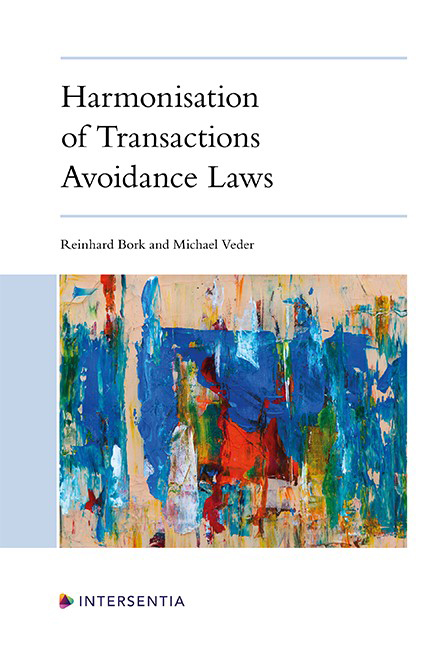Questionnaire
Published online by Cambridge University Press: 26 May 2022
Summary
PART 1. INTRODUCTION
(…)
PART 2. DETAILS OF YOUR NATIONAL TRANSACTIONS AVOIDANCE LAW
In this first part, we undertake to collect detailed information about your national transactions avoidance law. We intend to gain as much information as possible. Hence, our questions are probably too differentiated for some national laws. However, if you feel that a few questions are not suitable for your transactions avoidance rules, please explain why this is the case so that we can get a realistic impression as to what extent your national law covers respective topics. If questions are not relevant for your jurisdiction please answer “not applicable/n.a.” Please note also, that at the end of most parts backup-questions are available (e.g. Questions 11, 74) which provide for the opportunity to add topics not specifically asked for. Against this background, we ask you to answer the following questions as thoroughly as possible.
However, if you wish to implement some general introductory remarks in order to give a general explanation regarding your insolvency law and the available proceedings, you may place it here. You may refer to these more general remarks below with “cf. above before Question 1”.
I. SYSTEM
Question 1. Is your transactions avoidance law (for terminology cf. Introduction at C.) part of insolvency law or is it in parts or as a whole incorporated in other fields of law (e.g. general civil law, commercial law, company law)?
Insert text here
Question 2. Are the rules on transactions avoidance law in your jurisdiction the same for entrepreneurs/legal entities and consumers/natural persons? If not, please explain the differences and take it into account when completing this questionnaire.
Insert text here
Question 3. Are the rules on transactions avoidance law in your jurisdiction the same for liquidation and restructuring proceedings (if any)? If not, please explain the differences and take it into account when completing this questionnaire.
Insert text here
Question 4. Are the rules on transactions avoidance law in your jurisdiction the same for debtor-in-possession proceedings (if any)? If not, please explain the differences and take it into account when completing this questionnaire.
- Type
- Chapter
- Information
- Harmonisation of Transactions Avoidance Laws , pp. 505 - 528Publisher: IntersentiaPrint publication year: 2022

